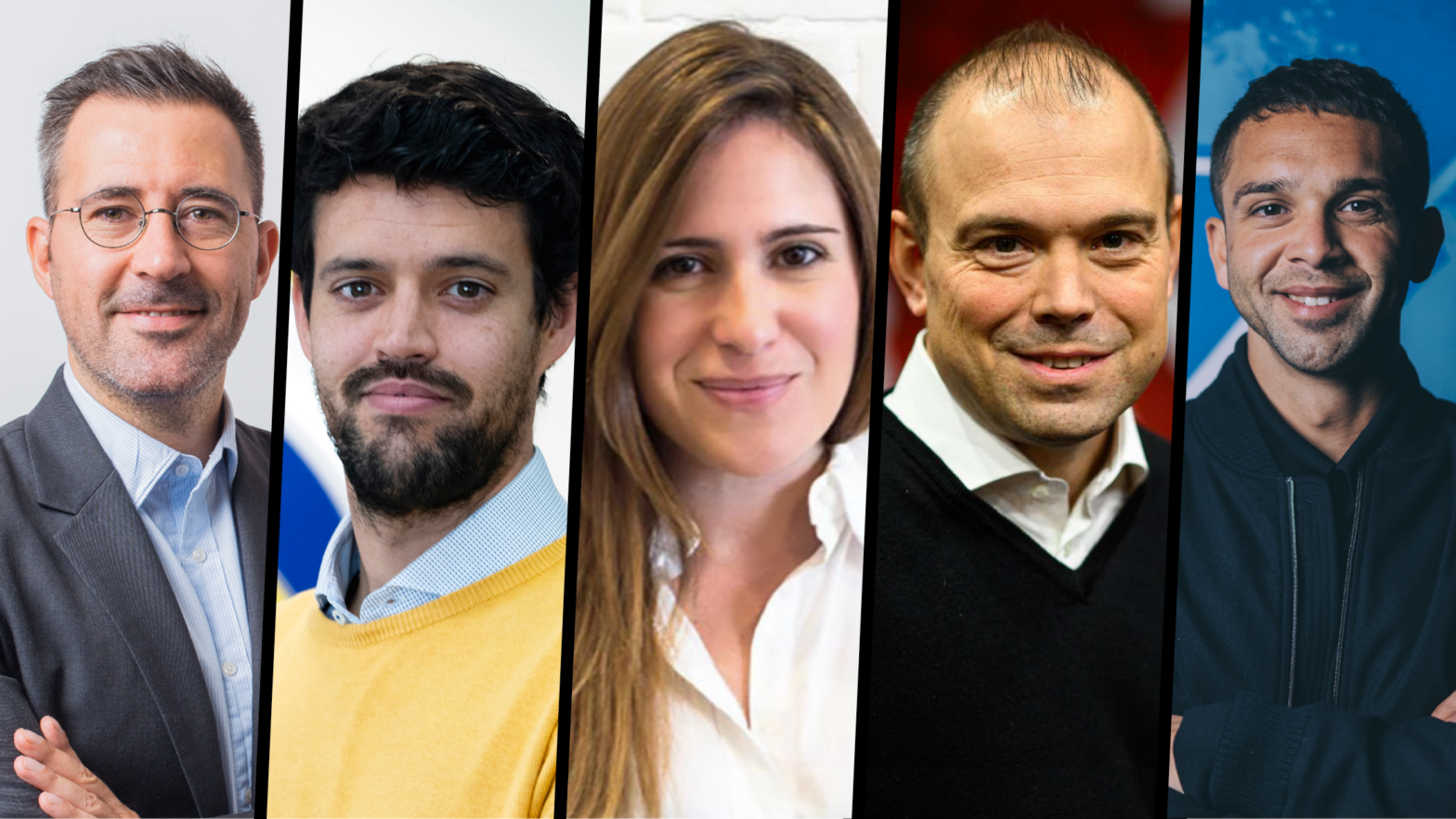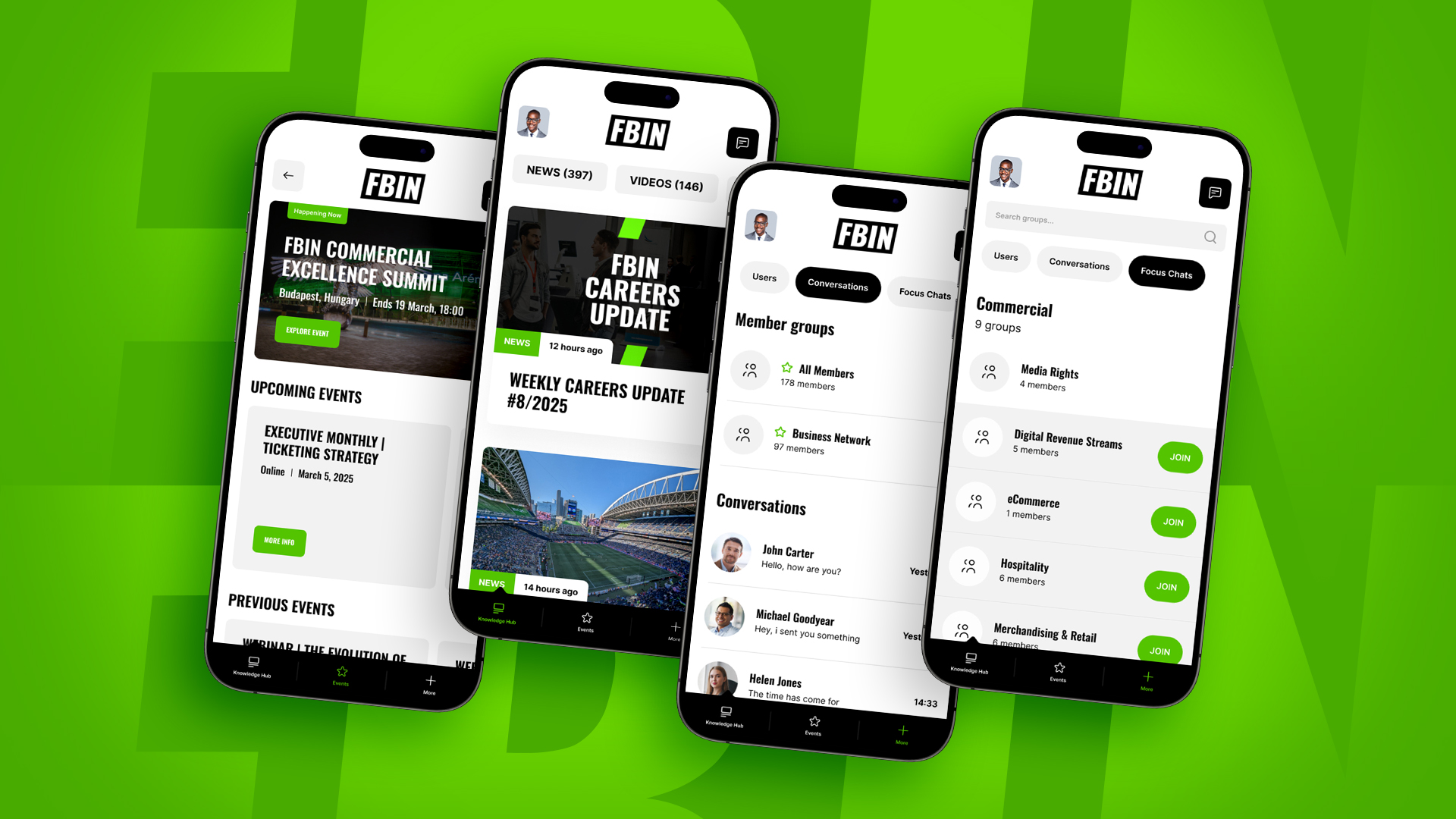Representatives from Villarreal CF, UD Las Palmas, Bayer Leverkusen and TSG Hoffenheim participated in an online round table, tackling the subject of internationalisation. LALIGA’s International Director Octavi Anoro also joined the session titled “Internationalisation – How to build a global brand” and shared four key pillars for building a successful strategy.
Brand-building in foreign countries was the main topic during the second of the LALIGA Extra Time online webinars, as representatives from Spanish and German clubs gathered to share insights from their internationalisation strategies.
Villarreal CF’s Brandon Páramo, UD Las Palmas’ Carlota Aparici, Bayer Leverkusen’s Leonardo Giammarioli and TSG Hoffenheim’s Tony Mamodaly participated in the session titled “Internationalisation – How to build a global brand”.
LALIGA’s four keys to building a global brand
LALIGA’s International Director Octavi Anoro also participated and he kicked off the session by discussing the competition’s internationalisation strategy and how following four key pillars has made it such a success. Those factors are local presence, strategic market entry and expansion, strategic partnerships and collaborations, and digital innovation, engagement and content creation.
Reflecting on these, Anoro said: “The first one, which is really important, is to have a local presence. That’s why we have a project with more than 40 individuals and more than 10 offices spread all over the world, to have the local know-how and to be connected with the right people. Another key is to create a specific strategy for each market. We define the strategy here in Madrid, in Spain, but obviously we adapt this strategy to all of the markets where we have a presence.”
The director continued: “Something that has been really useful for us is to find strategic partnerships and collaborations with the relevant stakeholders of the market. If you want to enter a market, there’s no better partner than a solid local partner. And, finally, there’s a need for a tailor-made digital strategy for the different fans in the different markets. You cannot create a global digital strategy or global content strategy and distribute this to all the countries in the same way. You have to adapt the content to each region.”
How Villarreal CF identify strategic markets and adapt to new realities
Representatives from the four clubs shared their own internationalisation experiences and provided some real-world examples of the tips outlined by the LALIGA International Director.
Brandon Páramo, the International Business Manager at Villarreal CF, spoke about how he and his colleagues really take the time to identify strategic markets and to develop a plan for growing the Villarreal CF brand in each one.
He said: “As a club, we need to identify what is good for us as an organisation because what we do might not be the same as what other clubs do. The capacity for us to grow locally is limited, so where do we have that capacity? It’s in international markets, markets that are on the curve of maturity. So, North America, Australia, Asia… Those are the markets that are interesting for us. How do we do this? We do this every way, both online and offline, both with periodic events and with long-term events. We try to tackle every single aspect.”
Páramo was clear, however, that there is no one-size-fits-all approach. He added: “We have to adapt to each market. We have to adapt to the reality. We can’t see things that don’t work and try to impose our way. No, we need to adapt to the market.”
The importance of partnering with foreign clubs for UD Las Palmas
At UD Las Palmas, they have realised that one interesting way to build a global brand is to partner with like-minded clubs in other countries. Carlota Aparici, Head of Expansion and Business at the club, discussed this approach, stating: “For UD Las Palmas, one of the most important things right now in our strategy is to have good alliances with other clubs in other countries and to create goals and activities together. For example, challenges with the players, watch parties, activities to create digital content.”
She continued: “There are three steps: to study our fan engagement audience target, to study the new market and its culture, such as what happens with supporters in general in this place, and to make a plan.”
One success story is UD Las Palmas’ alliance with Norwich City in England, as these two clubs share many connections, such as their yellow colours or even their nickname. Aparici explained: “In our case, we have a storytelling opportunity and we are working with a club with the same nickname in The Canaries. We try to find clubs with many points in common. I think it’s important to link with these kinds of clubs.”
Brand-building insights from Bayer Leverkusen and TSG Hoffenheim
The other two experts which took part belong to German clubs, but the brand-building basics are the same. Leonardo Giammarioli, Bayer Leverkusen’s Head of Internationalisation, also highlighted the need to work on storytelling, especially if a club can tell a story which makes it stand out from the pack.
Giammarioli said: “I would say the last step should be selling and becoming commercial. Before doing that, you need to tell a story. You need to have something to differentiate yourself from the big clubs around the world and have a really tailor-made approach to the market you’re targeting. What I think you cannot do is have a frozen approach which fits all, unless you are a Real Madrid or a PSG, where everybody knows you. If you are a club growing in popularity you need to have an alternative story to tell and create a special bond with the local communities, and that bond is something you need to stay true to. Only after that can you think about commercialising it.”
Tony Mamodaly, the Head of International Operations at TSG Hoffenheim, also shared some interesting insights. TSG Hoffenheim, a more modest club in the German football pyramid, have decided to approach internationalisation by trying to establish themselves as leaders in areas such as talent development, science and innovation and sustainability. They have worked with colleges, universities, labs and other partners, which goes back to Octavi Anoro’s point about strategic partnerships and collaborations.
Mamodaly told the audience: “I think the answer for us is that we are taking a different approach. So, we are not focusing on a B2C approach, but really on a B2B approach. We are locating interesting partners and strong brands with similar approaches and similar challenges as us. So, our role to get to the final point is completely different than in a regular football club.”
It’s clear to see, therefore, that there are many different ways to build a global brand in the football industry. While there are some common pillars for all clubs and competitions, each must also craft a custom plan to successfully establish their brand in a new market.


 Upgrade to Premium Now
Upgrade to Premium Now






